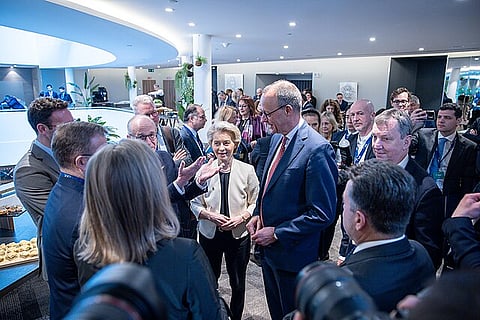

In a significant political victory for Friedrich Merz, Germany’s Bundesrat, the upper house of parliament, voted on Friday to approve a sweeping €500 billion ($546 billion) spending package aimed at bolstering defense, infrastructure, and climate protection. The decision marks a dramatic shift from decades of fiscal conservatism and follows a historic amendment to Germany’s constitution, which allows for unprecedented levels of government borrowing.
The amendment, which required a two-thirds majority in the Bundesrat, passed with 53 out of 69 votes, comfortably exceeding the 46-vote threshold. The reform was backed by Germany’s 16 federal states, despite initial resistance from smaller parties in state coalition governments. Notably, Bavaria, where the junior coalition partner "Free Voters" had raised objections, ultimately voted in favor as a bloc.
A New Era of Fiscal Flexibility
The legislation establishes a €500 billion special fund for infrastructure investments and relaxes Germany’s strict "debt brake" rules, enabling higher spending on defense, cybersecurity, intelligence, and civil protection. Under the new rules, expenditures exceeding 1% of Germany’s GDP in these areas can now be financed through new debt. The reform also exempts defense spending from the debt brake, a constitutional mechanism that has long limited government borrowing.
The push for the amendment was led by the Christian Democratic Union (CDU) and the Social Democrats (SPD), who are currently negotiating a coalition government following last month’s federal election. The parties expedited the legislation through the outgoing parliament to avoid potential roadblocks in the new Bundestag, where far-left and far-right lawmakers, who oppose the plan, gained seats in the February election.
Geopolitical Concerns Drive Urgency
The rapid passage of the spending package has drawn criticism from fringe opposition parties, but Merz and other proponents have defended the tight timeline, citing a rapidly changing geopolitical landscape. "The threat from the East, from Moscow, is still present, while the support from the West is no longer what we were once accustomed to," said Bavarian Premier Markus Söder, a member of the Christian Social Union (CSU), the CDU’s Bavarian sister party.
Söder, a self-described transatlanticist, expressed concerns about the erosion of trust in the United States under the Trump administration, which has questioned Washington’s commitment to European security while aligning with Russian narratives on Ukraine. "The relationship of trust in the United States of America has, at least for me and for many others, been deeply shaken. The Germans are worried," he said.
Merz echoed these sentiments, emphasizing the need for Europe to achieve greater independence from the U.S. "My absolute priority will be to strengthen Europe as quickly as possible so that, step by step, we can really achieve independence from the USA," he said.
Investments in Defense and Climate
The spending package includes significant allocations for defense modernization, with Söder calling for new weapons systems, drones, and air defenses to strengthen Germany’s armed forces. "We must do everything we can to ensure that Germany once again becomes one of the strongest armies in Europe and can protect itself," he told the Bundesrat.
In addition to defense, the plan earmarks €100 billion ($109 billion) for climate investments, a concession to the Greens that helped secure their support in the Bundestag. The inclusion of climate funding underscores the government’s commitment to addressing both immediate security concerns and long-term environmental challenges.
The passage of this landmark legislation signals a turning point in German fiscal policy, reflecting the country’s response to evolving geopolitical threats and its ambition to play a more assertive role in European security and sustainability.